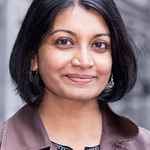Study programme
Programme structure
The one-year Master's in East European Studies comprises 60 ECTS credits.
-
Alternative ModernitiesPeriod 16
-
Post-Socialist Puzzles: Europe after 1989Period 26
-
Thesis Seminar European Studies: East European StudiesPeriod 36
-
Restricted-choice electives: East European StudiesPeriod 1Period 2Period 4Period 512
-
Free-choice electivesPeriod 1Period 2Period 4Period 5Period 612
-
Master Thesis European StudiesPeriod 4Period 5Period 618
-
Core courses
The core courses unravel Eastern Europe’s past and present through the prism of centre periphery relations to explain the current geopolitical conflicts. We examine the Soviet Union and socialist Yugoslavia as multi-ethnic states, dominated by the Russians and the Serbs. How did these states meet the challenges of separatist nationalism? Which alternative routes of modernisation were debated and implemented? The second part of the core course explores post-1989/91 developments in the same area. It discusses the extent and limits of the political and economic transformation against the backdrop of Europeanisation and globalisation, and analyses the emergence of the current crisis.
A study trip to one East Europe’s capitals is part of the core course programme.
-
Electives
You can tailor the programme to your own interests through a broad range of electives. A recent example of an elective is Memory & Conflict in Eastern and South-Eastern Europe. This course studies the fault lines in contemporary Europe by focusing on memories of the European past. The legacies and memories of the Second World War, communism and the Yugoslav wars have become stepping stones for nationalist and political identity formation. This course explores the presence of the past in South-Eastern Europe, where memories of the Second World War and of communism have contributed to new political conflicts.
-
Internship
In the second semester, you have the option to replace one elective with an internship at an NGO, academic institution or in the diplomatic sector. The internship will give you hands-on experience in working with issues related to Eastern Europe and will make you a more attractive candidate when you enter the job market. You are welcome to engage our vast networks of international contacts, but finding placement is ultimately their own responsibility. The grade and the internship credits (6 ECTS) awarded will be based on your final report or research paper.
-
Thesis
The Master's thesis is an individual research project carried out by the student under the supervision of a staff member. During the first semester you identify your thesis subject and discuss it with your supervisor; the broad range of our faculty's expertise allows you to investigate almost any region and topic. In the Research Seminar of Block 3 you begin to explore your project in depth. The thesis writing takes place in the second semester. The final product will be evaluated by your supervisor and a second faculty member.
-
Credit transfer
Students who show exceptional promise during a regular or professional Master's programme are encouraged to continue their studies in a research Master's programme. Once students are admitted to the research Master's programme, they can transfer credits earned during their previous course of study towards their Research Master's degree. The Examinations Board determines which courses qualify for transfer.

The ordinary and the unspectacular are significant, both politically and socially. This principle underpins my teaching and research.Dr Sudha Rajagopalan, Senior Lecturer Profile page Dr. Sudha Rajagopalan
-
Can this programme be studied part-time?
No, the course schedule is designed for about 40 hours of study per week (courses and self-study). It is possible to extend your studies into a second year, though.
-
Is the knowledge of East European languages mandatory?
No, it is not, although the knowledge of East European languages is certainly an asset.
-
Can I study East European languages in the programme?
No, due to the short duration. But there are a lot of extra-curricular possibilities to study additional language at the UvA.
-
I am insecure whether I am eligible for the programme.
Send transcripts of your earlier study to the track coordinator Christian Noack (c.u.noack@uva.nl) for a cross-check.
-
How does the programme accommodate internships?
We can offer up to 6 ECTS for an internship that needed to be agreed upon. But it is difficult to combine internships with the study programme that are longer than 3 months. Please contact the track coordinator Christian Noack (c.u.noack@uva.nl).